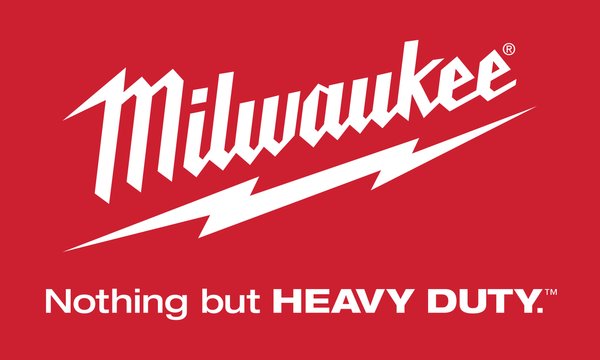Electrician vs Plumber: Your Guide to Choosing the Right Trade

Tradespeople are important. And that’s understating the fact. Trades underpin almost every aspect of our current civilisation - from power delivery (electricians) through to construction (carpenters, bricklayers), to waste management and water or gas delivery (plumbers) - it’s safe to say that they really do help keep society ticking.
When it comes to pursuing a career in the trades, two of the most popular options are becoming a plumber or an electrician. While both trades involve working with tools and systems, there are notable differences between the two.
Understanding the electrical trade
An electrician is responsible for installing, repairing, and maintaining electrical systems. They work with, and across, a variety of these, including lighting, power distribution, and communication systems. They ensure that these systems are installed safely, in compliance with building codes and regulations, and are properly maintained to prevent electrical hazards.
Electricians may work in residential, commercial, or industrial settings, and also in mining. They may specialize in one or more areas of electrical work. For example, some electricians may specialise in installing and repairing solar and photovoltaic systems, while others may specialize in installing and maintaining home automation systems.
To become an electrician you need to complete a four-year apprenticeship, through a registered training provider, such as EGT. You will need to be employed during this time as an apprentice electrician, to learn valuable skills on the job, as well as through formal training.
Understanding the plumbing profession
Plumbers typically work with water and gas systems, installing and repairing pipes, fixtures, and appliances. There are also some speciality roles, such as high-pressure, sewage, or hi-rise plumbers. These typically require further studies to complete.
Like electricians, plumbers require a four-year apprenticeship, and certification to be fully licenced.
Also akin to electricians, plumbers can also work in a variety of areas - from residential through to mining. They also must ensure that their work is completed in accordance with state and national legislation and standards, and must be able to warrant the work they complete.
Electricians vs plumbers: Similarities and differences
The reality is, the responsibilities of both plumbers and electricians are pretty similar - just working on different parts of the building. Both need to install, repair, and maintain equipment within the building - but for plumbers it’s to do with gas and water systems, and for an electrician it’s all things related to power and communications.
And, to get to become a tradesperson in both, the pathway is also quite similar - four year apprenticeship and vocational training, having to pass an assessment to become fully qualified in your state as well.
However, the job market for both of these careers is different.
Electricians have a slight edge over plumbers in Australia for a few different reasons. Firstly, the growth of the electrical industry as the world, and Australia, moves toward renewable energies (or green energy), and a higher reliance on communication facilities, is unparalleled.
Combine this with a shortage of trades and an increase in construction across the board, and the electrical worker will simply have more work - possibly too much - than its plumbing counterpart in the near to medium term.
That’s not to say that plumbers aren’t in demand - because they are. But, in the world of plumbing there currently haven’t been the colossal shifts we have recently seen in the electrical industry.
That said, the rise of hydrogen for power and energy purposes is likely not far off - and this will have an arguably similar level of shift in the gas and plumbing trade as well. But as for this exact moment of writing, hydrogen technology and its use en masse is still several years away.
Who earns more money, a plumber or electrician?
In Australia, electricians generally tend to earn higher salaries compared to plumbers. According to the latest data from the Australian Bureau of Statistics (ABS) as of May 2020, the median weekly earnings for full-time electricians were AUD 1,900, while for plumbers, it was AUD 1,753. This translates to an annual median income of approximately AUD 98,800 for electricians and AUD 91,256 for plumbers.
However, according to indeed.com and focussing on WA, this gap changes dramatically, with plumbers earning a smidge over $82,000 per year, whilst an electrician earns close to $110,000.
However, it's important to note that individual salaries can vary based on factors such as experience, qualifications, location, and the specific sector or industry in which they work. Plumbers who specialise in niche areas or have advanced qualifications may be able to command higher salaries. Similarly, electricians with extensive experience or specialised expertise may also earn higher incomes.
How should I decide between becoming an electrician or a plumber?
This is the million-dollar question. At the end of the day, it is entirely up to you. We would obviously say that electrical is the way to go - and indeed on paper and looking to the future it seems to be the logical choice of the two.
However, at the end of the day, it will involve a lot more commitment to further education, as the rapid changes in the industry might see you having to head back to training for new communications, power delivery, or even regulatory updates.
It may be salient for you to gain real-world exposure to both before making a choice. See if you can go for a ride-along with a plumber and an electrician for a few days each to see which you think you’d prefer. After all - a career is for a long time - so you have to be happy in your role. And remember, there isn’t any right or wrong choice - it’s your decision.
Conclusion
At the end of the day, if you’re deciding whether to become a plumber or an electrician, the truth is you should choose the role which you feel you will be best suited to. Take into consideration what you really want to work on - do you want to work in hi-rise plumbing, designing waste systems or gas systems?
Or, would you prefer to do home automation, communications and power? You might also like to think which profession you could make the best impact in, and which one aligns closer to your goals and motivations.
For us, we believe that the electrical career is the better of the two. Logically it makes more sense, can earn you better money, and has more happening in the long run. But, at the end of the day there’s one thing that we can’t quantify - and that’s how happy you are in your new career.
And that’s a decision you’ll have to make.












